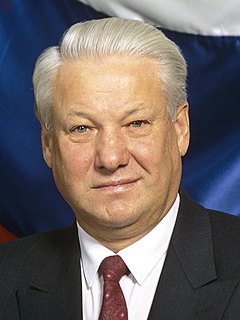A Quote by Marsha Blackburn
Countries like Iran and China support an Internet Iron Curtain that would censor political dissidents and deny anonymous activity online through mandatory registrations of IP addresses.
Related Quotes
The inner censor of the mind of the true believer completes the work of the public censor; his self-discipline is as tyrannical as the obedience imposed by the regime; he terrorizes his own conscience into submission;he carries his private Iron Curtain inside his skull, to protect his illusions against the intrusion of reality.
Sanctions did indeed help to bring Iran to the negotiating table. But sanctions did not stop the advance of Iran's nuclear program. Negotiations have done that, and it is in our interest not to deny ourselves the chance to achieve a long-term, comprehensive solution that would deny Iran a nuclear weapon.
The general belief is that communists in the United Nations come only from the Iron Curtain countries, but this isn't so. We must remember that many of the representatives of free countries are members of the local Communist parties. If you add them all up, you will see they have an amazing degree of control.
While sanctions against Iran and Syria are intended to constrain those countries' governments, they have had the unfortunate side effect of constraining activists' access to free online software and services used widely across the Middle East, including browsers, online chat applications, and online storage services.
Israel's discourse with the United States on the subject of Iran's nuclear project is more significant, and more fraught, than it is with Europe. The U.S. has made efforts to stiffen sanctions against Iran and to mobilize countries like Russia and China to apply sanctions in exchange for substantial American concessions.

































